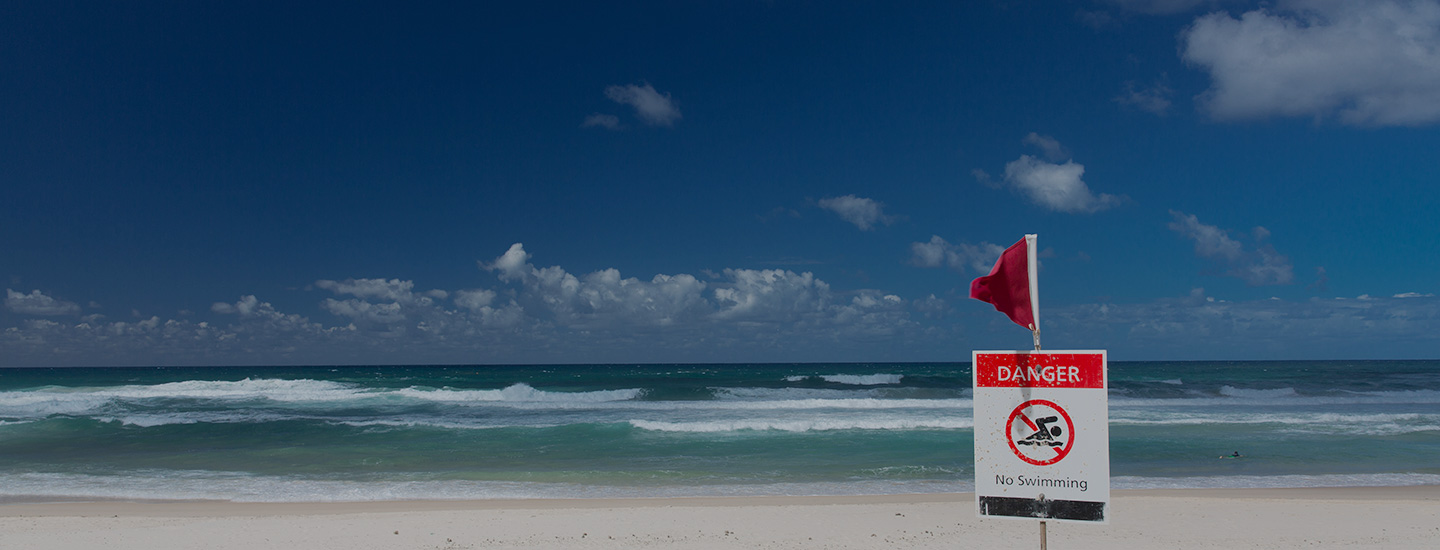
The impacts of climate change – extreme heat, drought, wildfires, powerful storms, coastal flooding, to name a few – are undoubtedly having harmful effects on the health, economy and infrastructure of communities across the nation.
A new report, Overflow: Climate Change, Heavy Rain and Sewage, published by the nonpartisan group Climate Central, illustrates another unintended consequence of climate change that threatens our ocean, bays, and rivers – untreated sewage. Its study of rain-related overflows from January 2015 to August 2016 identified 70 rain-related sewage overflows with 30% having more than 1 million gallons – nearly 2 Olympic-sized swimming pools – and 70 percent were of at least 10,000 gallons of untreated sewage waste.
Sewage waste overflows are one of the leading sources of harmful bacteria in our nation's waterways. Unfortunately, the report finds heavy storms exacerbated by climate change will continue to impact our waterways and health. According to the research, all but two of the Lower 48 states have experienced an increase in heavy downpours each year, on average, compared to the 1950s, and 28 states have seen at least a 25 percent increase in these heaviest events.
The largest sewage spills, from tens to 100s of millions of gallons, are almost always caused by heavy rains, which take the form of either high intensity downpours over several hours or incessant rain over many days.

Many towns in North Carolina are reporting sewage spills from the thousands to 3 million gallons as a result of Hurricane Matthew’s floodwaters. While the wake of that storm was extraordinary, this past summer, more than 6 inches of rain fell in just 2 hours in Ellicott City, Maryland where flash flooding caused more than 25 million gallons of sewage to overflow.
More disturbingly, local leaders and officials are probably underestimating the true volume of the sewage overflows. This is mainly the result of not having any good method for determining how much untreated waste makes it into our waterways during these flooding emergencies.
Even in cities with multi-million or billion-dollar infrastructure upgrades, heavy rain can still overwhelm the system to produce massive sewage overflows. Wastewater treatment plants are also vulnerable to high-intensity storms as they are usually located beside the coastline and shores of rivers and bays. Rising water levels can flood treatment plants, forcing the facilities to dump untreated or partially treated sewage directly into the ocean, bay or river.
It is likely that no sewer system upgrade, even the most advanced, will prevent every overflow. At best, increased sewer capacity can help contain more stormwater, but intense storms can still inundate the system.
Over the last 30 years, the Surfrider Foundation has worked tirelessly to protect our ocean, waves, and beaches—and now with climate change, we are doubling our efforts to ensure our ocean and coastlines are protected for generations to come. And it will take a concerted effort from concerned citizens civic leaders and policymakers to combat the disruptive effects of climate change that threaten our communities and most their most valuable assets.
We have and will continue to engage in policy discussions and advocate for the active planning and implementing of climate change mitigation and adaptation measures.
And, with the commitment of our national, state and local leaders, we will continue raising environmental awareness and working to find solutions that address the challenges of climate change and the looming impacts on our oceans and coasts.